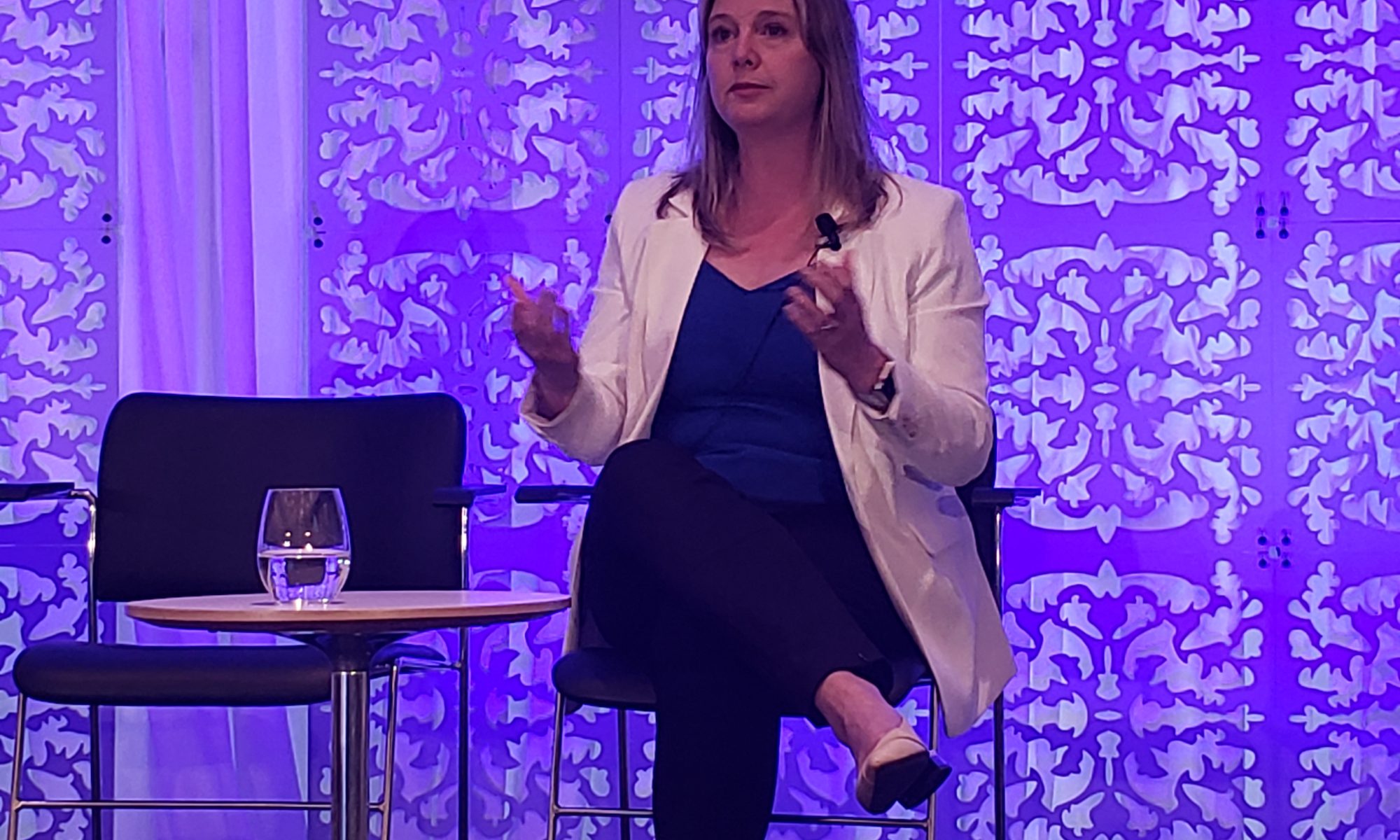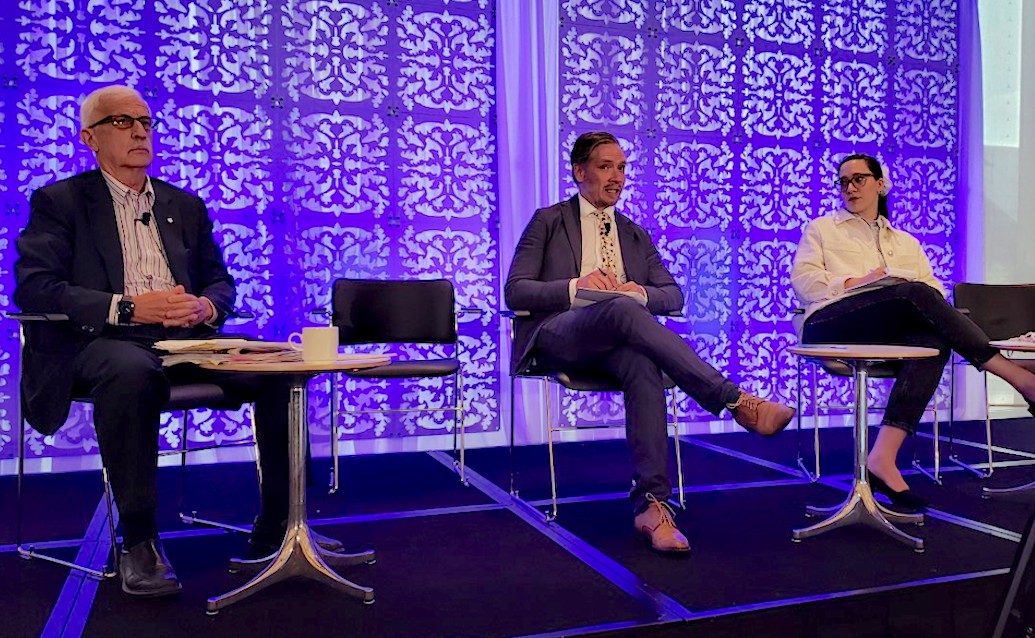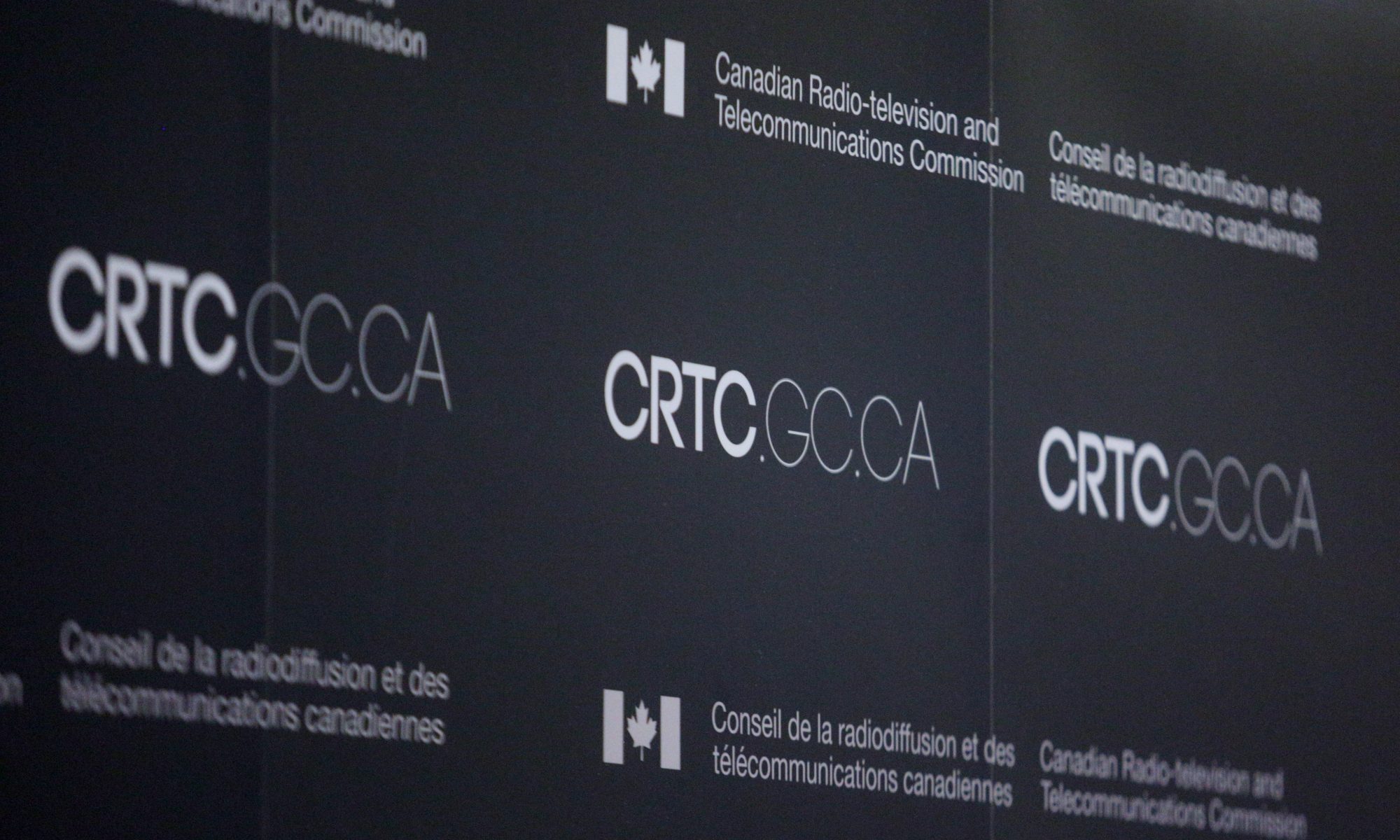Former APTN and current Dadan Sivunivut CEO has said that two pieces of government legislation aimed at regulating online platforms to benefit Canadian media is not doing enough for the Indigenous players in the industry.
Monday, Jean LaRose gave a talk on the state of Indigenous media at the International Institute of Communications conference and spoke to the Wire Report in a follow-up interview.
Dadan Sivunivut is a new corporation launched in 2020 by APTN. It houses the network’s for-profit and business units. LaRose formerly served as APTN’s CEO.
LaRose called the government’s proposed news compensation bill, Bill C-18, “totally useless” for Indigenous and small media players, and said the proposed Online Streaming Act, Bill C-11, does not fully support Indigenous media.
LaRose said Bill C-11, as it stands now, does not go far enough to “protect and to really, really strongly reestablish, and establish, the presence of Indigenous broadcasting on radio, TV or streaming services.”
He said reconciliation in the broadcasting industry means increasing guaranteed funding, which is necessary for Indigenous language revitalization.
“It does not provide us with the necessary legislative framework to grow and expand as we need to and also to ensure that we’re fully funded. Because as new sectors in the industry, there are very few opportunities for us right now, in the changing environment, to really reach out and generate sufficient revenues on our own,” he said in an interview with the Wire Report.
LaRose said government legislation needs to provide financial support “for the next period of time,” as it did for APTN, until Dadan Sivunivut can fully establish itself and generate its own revenues. He said that the current Liberal government has devoted more money to Indigenous arts and culture but it is still “nowhere to what we need” to meet the needs and opportunities for the Indigenous community.
“I launch the challenge to – since 1867 till about the 2000s, the government invested in what today’s terms would be billions to try and eradicate us, through residential schools — to take all of those costs, convert it into current money. That’s the amount, in my view, that needs to be reinvested to rebuild our communities and reestablish ourselves to the level that we have regained our languages and become an intrinsic part of Canada,” he said.
LaRose also called on the government to develop a new Indigenous Broadcasting Policy in concert with the CRTC which can fund, and provide support for, Indigenous media both on and off reserves as well as in urban areas so “Indigenous communities are heard and seen from their own people, not from an outside perspective.”
In a keynote address to the conference, Tuesday, Canadian Heritage Minister Pablo Rodriguez promised to “modernize” the CRTC to fit its new role in the digital age, after opposing MPs and stakeholders raised concern that the regulator lacked the expertise to regulate online platforms. He did not mention the addition of new resources or positions within the CRTC to cater specifically to Indigenous media.
In regard to Bill C-18, LaRose said it was useless for Indigenous media and small players in the industry because the way it is being structured benefits legacy media. He said there is concern that Alphabet Inc.’s Google and Meta Platforms Inc.’s Facebook will be considered to have reached their obligations once a certain number of arrangements have been struck with the larger players.
LaRose said his corporation helped launch a service called IndigiNews in British Columbia which he hopes to slowly expand across the country. The platform currently relies on donations and it is trying to access “short-term” government funding such as the Local Journalism Initiative.
The government has proposed through legislation that small publishers can get together collectively to negotiate, which LaRose called “inappropriate.” He said that legacy outlets such as TorStar and the Globe and Mail have more resources to negotiate “much better” and “the weight to throw behind them” over a four-person news outlet like IndigiNews.
LaRose said C-18 does not set a level playing field for the long-term. He said all the media outlets should be assigned the same amount of revenue based on the proportion of journalists employed. He said the concern is that larger outlets will receive, for example, $20,000 per journalist whereas a small community paper might get $5,000 per journalist employed.
“The amount should be the same for any organization… If we keep throwing money at the big players we’re just throwing money at the problem.”
“We’re spread across the country, we don’t even have the resources to meet, let alone meet with officials. We’re already starting behind the eight-ball,” he said. “So I think that response [by the government] is, for lack of a better term, inappropriate because it doesn’t recognize the difference between small and big players. We don’t even know who we all are.”
Founder and CEO of a hyper-local independent publication, The Green Line, Anita Lee, echoed LaRose’s concerns at a Tuesday panel on news compensation where she reminded attendees that the bill excludes organizations with fewer than two arms-length employees. Lee said she contracts journalists and has no full-time employees, therefore, she is one of the organizations excluded from the bill.
“C-18 feels in some way when it comes to continuation of the $645 million federal package from 2019 that supported roles and organizations that heavily favored legacy newspapers.”
She said organizations big and small, are “supposedly teaming up to bargain collectively with digital giants for compensation. But high-potential media startups like mine, and many others, don’t have leverage when it comes to these negotiations.”
News Media Canada president and CEO Paul Deegan said that his organization is planning to form a group of small- and mid-sized publishers for collective bargaining.
“We believe that it’s an elegant approach to a problem,” Deegan said.
Lee also said there is no incentive for established, larger, media organizations to bargain alongside small publications or be transparent with the details of their deals.
Asked if it is incumbent upon the news organizations to make the terms of their arrangements public, Deegan said that news publishers, like any other business, will keep the terms of their businesses private – with the exception of publicly traded companies who may have to disclose in some form.
“We will see them essentially as any commercial arrangement, which would be a private transaction. Having said that, in the legislation there’s going to be a heightened level of transparency compared to what we’ve seen in Australia,” he said. “I think we’re comfortable with sort of aggregate level data on behalf of the industry.”
– Reporting by Jenna Cocullo at jcocullo@thewirereport.ca and editing by Paul Park at ppark@thewirereport.ca









